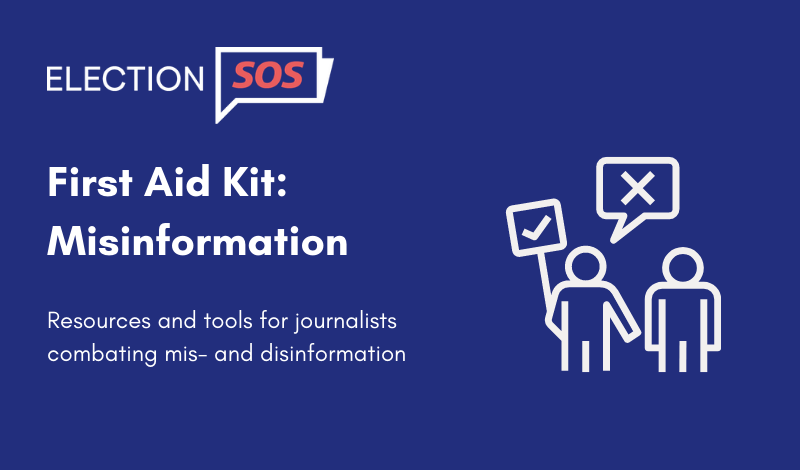
Election SOS First Aid Kit: Misinformation
article
Rampant misinformation ultimately fueled a pro-Trump mob to storm the U.S. Capitol on Jan. 6. Here’s how your newsroom can combat misinformation now and beyond inauguration day.
Take a Class
- First, learn how to protect yourself and your community from misinformation with First Draft News’ free two-week text message course. Available in English and Spanish, this course delivers daily nuggets of training via SMS. Sign up and share “Protection from deception.”
Stay Alert
- First Draft also distributes daily insights to local and national reporters about disinformation themes and trends to help in their reporting. Sign up for that here.
- You can also sign up to be a media monitor for Mediators Beyond Borders International’s TRUST Network.
Look Abroad
- Misinformation isn’t exclusive to the United States. Poynter has a detailed report on how other countries across the globe respond to misinformation.
- Both the International Fact Checking Network and EU DisinfoLab also fact-check claims abroad.
How to Correct
- Over Zero has a comprehensive guide on how to correct misinformation tactics, from using positive framing to providing an alternative explanation. Why? Repeating an accusation or false claim may actually end up strengthening the association you’re trying to dispel.
(Download the guide here.)
Who Else is Vetting Claims?
- St. Louis Community College Libraries has put together a list of fact-checking websites. If a claim or piece of information sounds untrue, check if it has been vetted using one of those websites.
- These include:
Other debunking resources to follow as we see misinformation spreading: @PolitiFact, @factchecknet, @APFactCheck, @AFPFactCheck, @factcheckdotorg and @bellingcat. Have a favorite we left out? Share it and we’ll amplify!
— News Media Alliance (@newsalliance) January 7, 2021
On the Beat
-
- There are also journalists whose primary work involves misinformation, including The New York Times’ Jack Nicas and The Wall Street Journal’s Rachael Levy.
- This thread from The Centre for Investigative Journalism also has some key journalists you should follow:
We deal with #disinformation a lot here at the CIJ. From teaching how to spot it to discussing its impacts.
Here are a few useful links to useful resources and examples of how easy it is to spread disinformation and how hard it is to disprove it.
Thread.
— The Centre for Investigative Journalism (@cijournalism) January 11, 2021
Additional Resources:
- Election SOS – First Aid Kit on Covering Conflict
- Election SOS – First Aid Kit: Safety Checklists
- Also check out our expert database, which is a diverse roster of non-partisan, vetted sources.
